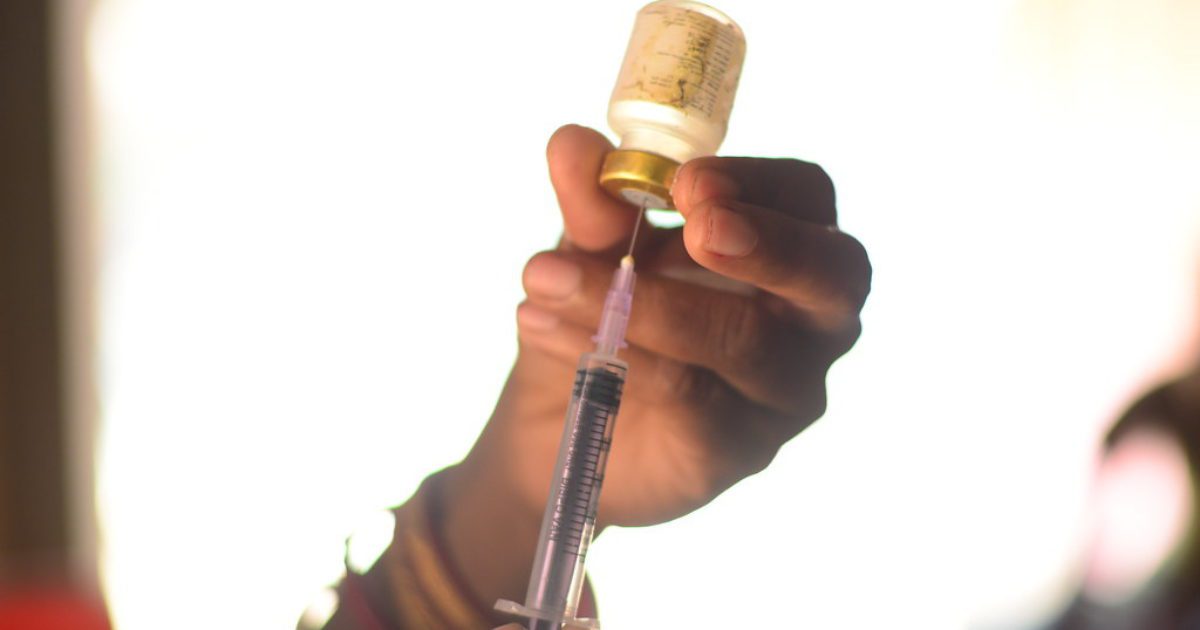India’s Supreme Court said on Monday that no individual can be forced to get inoculated against COVID-19, citing “bodily integrity and personal autonomy.”
The court added that “as long as there is a risk of spreading the disease, there can be restrictions placed on individuals’ rights in larger public interest.”
“Till the infection rate remains low and any new development or research finding emerges which provides due justification to impose reasonable and proportionate restrictions on the rights of unvaccinated individuals, we suggest that all authorities in this country, including private organisations and educational institutions, review the relevant orders and instructions imposing restrictions on unvaccinated individuals in terms of access to public places, services and resources, if not already recalled,” the bench of Justices L Nageswara Rao and B R Gavai said.
Although the court upheld the Centre’s vaccination policy, saying it was not “unreasonable or manifestly arbitrary,” they also asked the government to make data on adverse events after immunisation “publicly accessible.”
In regard to vaccine mandates, the court said that “no data has been placed by the Union of India or the states appearing before us, controverting the material placed by the petitioner in the form of emerging scientific opinion which appears to indicate that the risk of transmission of the virus from unvaccinated individuals is almost on par with that from vaccinated persons” and therefore, the “various vaccine mandates by state governments / Union territories cannot be said to be proportionate.”
WATCH:
India 🇮🇳 Boom 💣 🔥 Supreme Court rules No One can be forced to be Vaccinated and that the VAX mandates are not warranted ..The Govt must now provide proof that the UNVAXXED pose a greater risk 🔥👊 pic.twitter.com/Cd8SWx5omW
— 𝙍𝙄𝙎𝙀𝙈𝙀𝙇𝘽𝙊𝙐𝙍𝙉𝙀 (@Risemelbourne) May 4, 2022
1/ India's Supreme Court rejects Covid-19 vaccine mandate : "no individual can be forced to be vaccinated…protections guaranteed under Article 21, encompass the right to refuse to undergo any medical treatment in the sphere of individual health”.https://t.co/grZBMlc4sz
— Andrew Bostom, MD, MS (@andrewbostom) May 4, 2022
Indian Express reported:
Writing for the bench, Justice Rao said: “With respect to the infringement of bodily integrity and personal autonomy of an individual considered in the light of vaccines and other public health measures introduced to deal with the Covid-19 pandemic, we are of the opinion that bodily integrity is protected under Article 21 of the Constitution and no individual can be forced to be vaccinated. Further, personal autonomy of an individual, which is a recognised facet of the protections guaranteed under Article 21, encompasses the right to refuse to undergo any medical treatment in the sphere of individual health”.
“However, in the interest of protection of communitarian health, the government is entitled to regulate issues of public health concern by imposing certain limitations on individual rights, which are open to scrutiny by constitutional courts to assess whether such invasion into an individual’s right to personal autonomy and right to access means of livelihood meets the threefold requirement as laid down in K S Puttaswamy (privacy judgment) …i.e., (i) legality, which presupposes the existence of law; (ii) need, defined in terms of a legitimate state aim; and (iii) proportionality, which ensures a rational nexus between the objects and the means adopted to achieve them,” the court said.
“On the basis of substantial material filed before this court reflecting the near-unanimous views of experts… this court is satisfied that the current vaccination policy of the Union of India is informed by relevant considerations and cannot be said to be unreasonable or manifestly arbitrary,” it said.
cont.
The court clarified that “in the context of the rapidly evolving situation presented by the Covid-19 pandemic, our suggestion to review the vaccine mandates imposed by states/ Union territories is related to present situation alone and is not to be construed as interfering with the lawful exercise of power by the executive to take suitable measures for prevention of infection and transmission of the virus. Our suggestion also does not extend to any other directions requiring maintenance of Covid-appropriate behaviour issued by the Union or the state governments”.
“Persons who are keen to not be vaccinated on account of personal beliefs or preferences, can avoid vaccination, without anyone physically compelling them to be vaccinated. However, if there is a likelihood of such individuals spreading the infection to other people or contributing to mutation of the virus or burdening of the public health infrastructure, thereby affecting communitarian health at large, protection of which is undoubtedly a legitimate state aim of paramount significance in this collective battle against the pandemic, the government can regulate such public health concerns by imposing certain limitations on individual rights that are reasonable and proportionate to the object sought to be fulfilled,” it said.
Watch the World Council for Health discuss the landmark decision on Rumble:



Join the conversation!
Please share your thoughts about this article below. We value your opinions, and would love to see you add to the discussion!